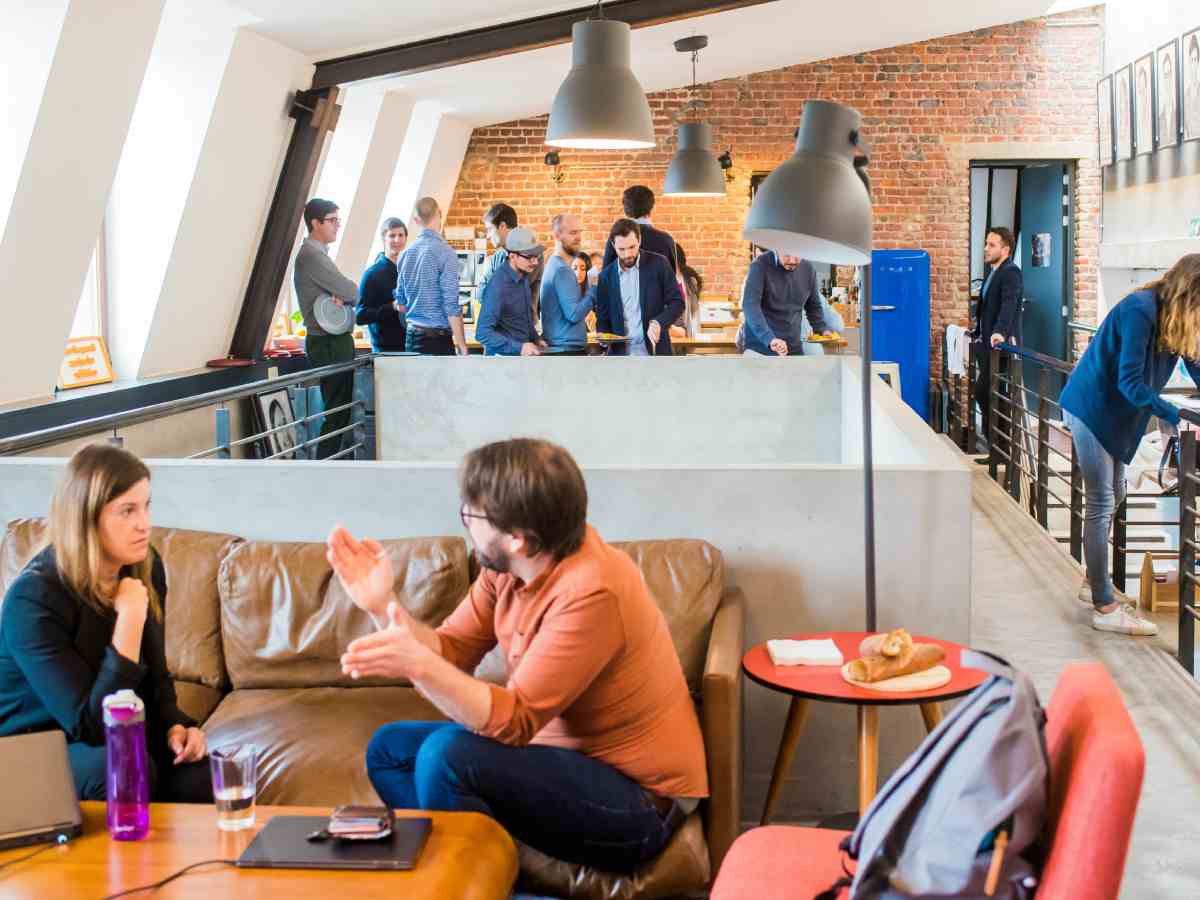What Does The Modern Workplace Mean?

The world of work is changing rapidly. Just a few years ago, it was almost unthinkable that entire office workstations would be moved from the office to employees’ homes. Still, today, this is common practice and is already firmly established in many areas. But what is meant by a modern workplace, and what are the differences to the home office? We’re trying to shed some light into the darkness.
Table of Contents
How Can You Define a Modern Workplace?
One can say straight away that this term has no fixed definition, nor does it have any selected features or other clearly regulated parameters.
A modern workplace is a modern workplace that is not tied to a fixed location. Rather, it is a concept of a virtual, digital working world in which work can be done at any time and anywhere. In order for this to happen, modern IT technology must be used to create a working environment that is tailored to its users and meets their needs. In addition, a company’s applications, services, data, and information must be managed differently, which amounts to a change in the corporate culture. The user should be able to work independently of time and space without restrictions and.
Since it makes absolutely no difference when it comes to accessibility and data access, whether an employee is in the traditional office, working from home, or on a business trip, the concept of flexibility and collaboration needs to be rewritten.
What Conditions Should Be Created?
Of course, users must be equipped to work mobile. A laptop and mobile telephony options should be available, but this usually goes without saying. Thanks to modern IT technologies, IT security is guaranteed at all times, and monitoring runs in the background so that no one has access to company data. Thanks to mobile phones and meeting apps, you can be reached anywhere and easily take part in business meetings, which ensures quick exchanges and increases efficiency.
In addition to the hardware, a modern workspace also poses challenges for the software. Ultimately, employees must be provided with a digital interface on which they can work. Data provision is also an issue because, finally, you should be able to work from any location. With the ever-increasing threat from hackers, data security is, of course, a central issue that is given great importance. Another important point is technical support for questions or problems, as this must also be guaranteed around the clock.
What Strategy Can Be Used To Implement a Modern Workspace?
Since there is no uniform definition for a modern workspace, no uniform technical specifications, and no uniform infrastructure, there is no blueprint for a modern workspace. Rather, it depends on each company individually to develop a strategy. The basis should, of course, be to consider what goal you are pursuing or what requirements you have for the target image. Another important point is analyzing the status quo because you should know exactly where you start and what tools you already have at your disposal.
Another important point is to have an experienced partner at your side. There are consulting firms that specialize specifically in digital transformation in companies and provide their clients with advice and support. Since the path to a modern workspace is long, and you need a clear line to implement it, such helpers are very important.
An experienced partner also knows exactly how to position yourself when it comes to data protection and IT security. Because despite all the flexibility and all the different tasks, these points must never be lost sight of; support is very important at this point.
A Longer Process Lies Ahead For The Companies.
The terms home office or mobile working already promise flexibility. To put it simply, a home office is a fully equipped office within your own four walls. You usually receive the technical equipment, a desk chair, and other equipment directly from the employer, as they are responsible for the occupational safety of their employees, even when working from home.
The term mobile working, on the other hand, is better for the employer, as employees can work mobile, i.e., in different locations. Employees only need to have a mobile device and can, therefore, work flexibly.
